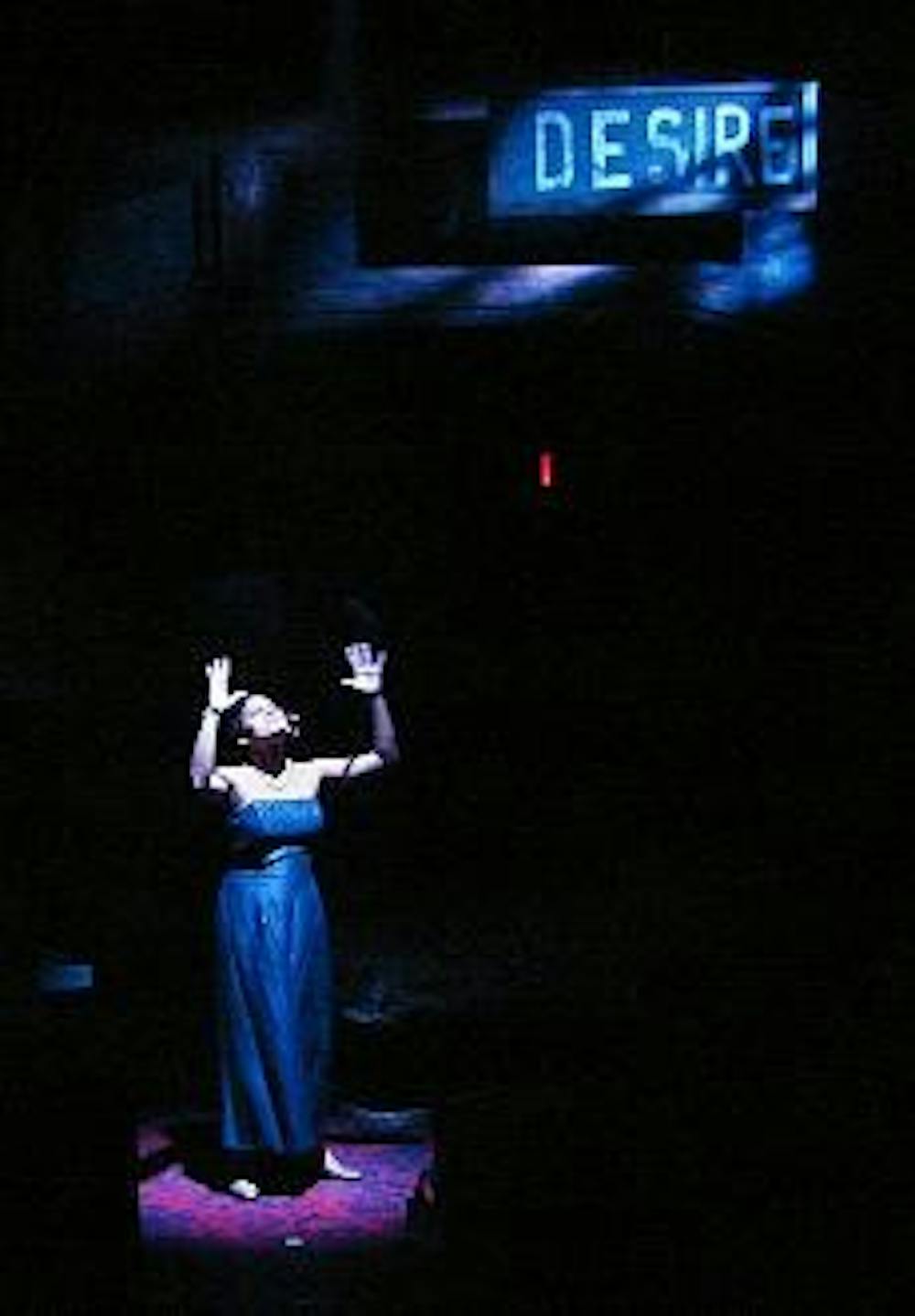"A Streetcar Named Desire" Gallaudet University Black Box Theater Nov. 16 - Nov. 19 Tickets: $8 for students
Though still in the shadow of the Capitol and the Washington Monument, one cannot help but feel lost or foreign. Most AU students (and most of the D.C. community for that matter) do not venture past Union Station on Saturday nights.
Shady Grove-bound trains screech to a halt at Dupont and Adams Morgan, spilling their chattering contents onto the platforms, unaware of the world of silence located a few stops in the opposite direction.
But at the New York Avenue-Florida Avenue station, after catching the shuttle to Gallaudet University, one will discover the buzzing community behind this university's silent campus.
Many students were not very familiar with Gallaudet or its history as the premier university for the deaf until the recent controversy surrounding the search for its next president.
But that was the last thing on everyone's mind as a few dozen students, alumni and theater enthusiasts gathered in the university's Black Box Theater for the school's presentation of "A Streetcar Named Desire."
While many here harbor strong personal opinions on the recent controversy, they are determined to focus on the present and the positive, and "Streetcar" is just that.
"I had chosen to put on this play long before the issue with the university's president began. But it has been a hard fall," said director Ethan Sinnott, pointing to the play's promotional poster on which a single streetlight is burning in the dark. "And 'Streetcar' has been just like that bright spot in the middle of all this disarray and uncertainty."
The passion with which the play has been produced is evident throughout the performance. The set is beautifully constructed, lights and music (yes, there is music) expertly orchestrated and cued, and the stage fighting, integral to the play's plot, seamlessly choreographed.
The cast is amazingly expressive in their portrayal of the characters, starring Laurette Evringham as Blanche DuBois and first-time actors Amanda Jones and Martin Dale-Hench as Stella and Stanley Kowalski. One's gaze often deserts the subtitles to follow the action on-stage, whether or not one can comprehend American Sign Language (ASL).
"Deaf actors use a lot more physical communication. Their acting is very visceral and emotional. Communication in general between the deaf is a lot more physical than that between the hearing," Sinnott said.
Aside from the play being performed entirely in ASL, other adaptations have been made to accommodate deaf theatergoers, bringing what goes on behind closed doors in Williams' script to forefront of the stage.
For instance, a female ghost communicates the jazz music that is otherwise instrumental in creating the tone of Williams' play. Blanche's musical hallucinations are accompanied by the ghost of her dead fianc?e on stage.
"We didn't lose much at all in adapting the play," Sinnott said. "It bothers me that there are deaf adaptations of scripts that disrupt what is actually part of the play, or just delete all the nuances so that deaf audiences are left with a dumbed-down version. I don't know if that's just because they don't have enough confidence in the audience, but the theater is a sensory experience. It's not meant to be just watched. It's meant to have many dimensions, to be a three-dimensional experience."
Sinnott's adaptations afford even hearing audience members a more enriching, multidimensional theater experience. And while the subtitles were, at times, a few lines behind, these visual additions are more than compensatory. After all, at Gallaudet, there is no assumption that one can hear.
"My primary audience is the deaf community and those who know and use ASL. I want it to reflect them. I want them to see themselves in the play," Sinnott said.
This theater experience is more than entertainment; it is about learning. It quickly becomes obvious that the deaf community is not disabled at all. Like other communities, it simply uses a different language. The experience is much like traveling to Paris without a working knowledge of French.
At Gallaudet, "[people who can hear] see what it's like for us when we go everywhere else," Jones said.
"People should come to see how deaf people can actually put on a play, and [how] captioning is like our experience [elsewhere]," Evringham said.
Often English speakers expect the rest of the world to understand at least some of their language. This tacit expectation of many Americans becomes painfully pointed when it does not even hold true in the nation's capital, in this community where English is written and read but rarely spoken or heard.
Although visiting this foreign community is initially overwhelming, it is also enlightening.
"Spoken communication is always taken for granted," Sinnott said.
"Here, we are the ones with the voices"





